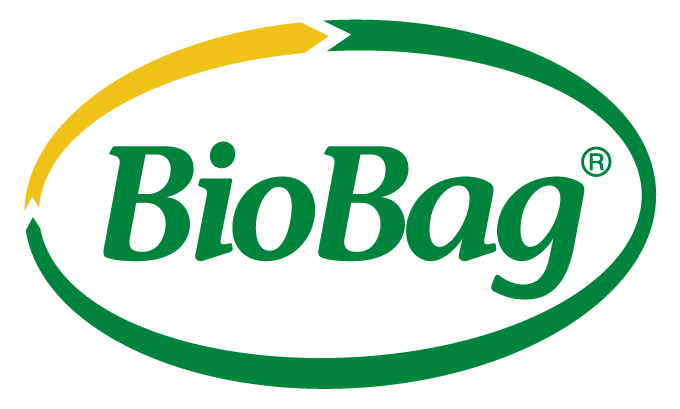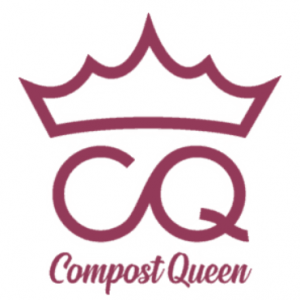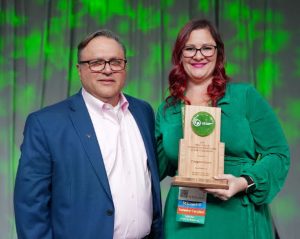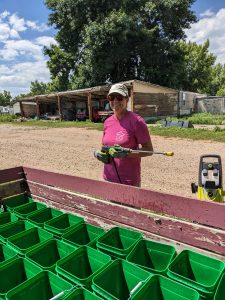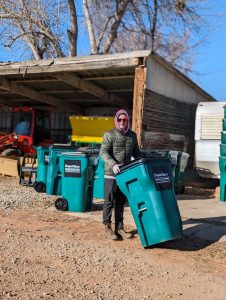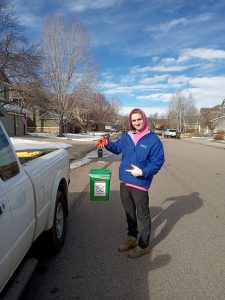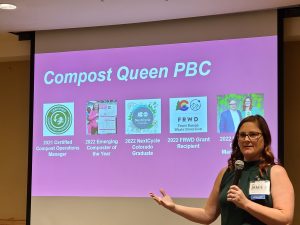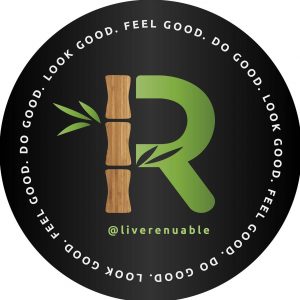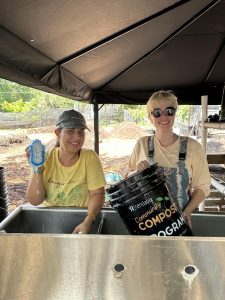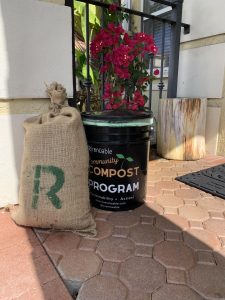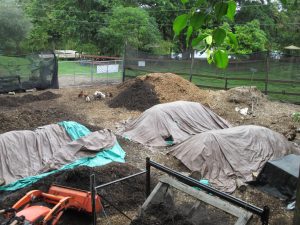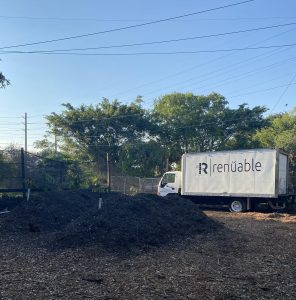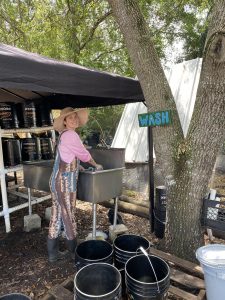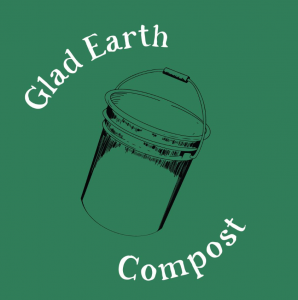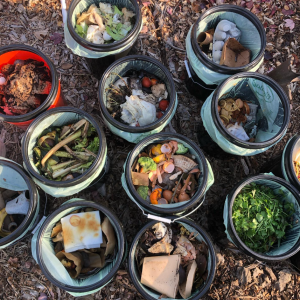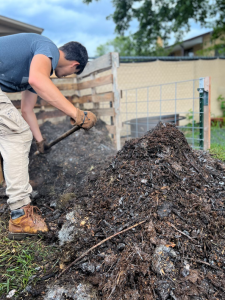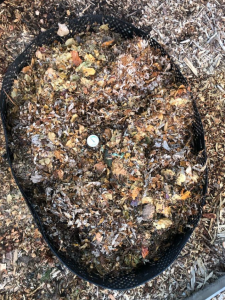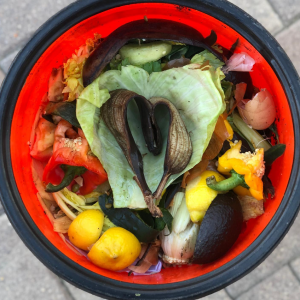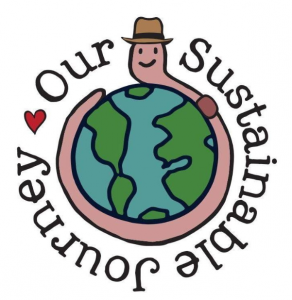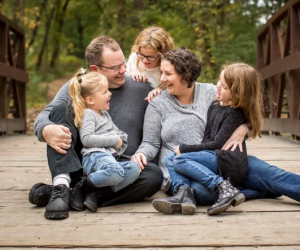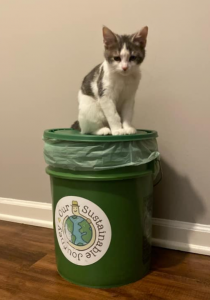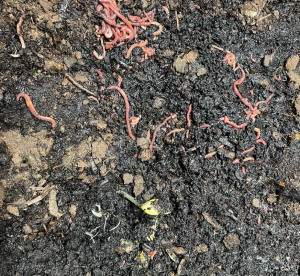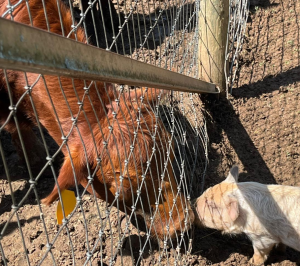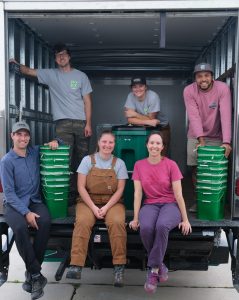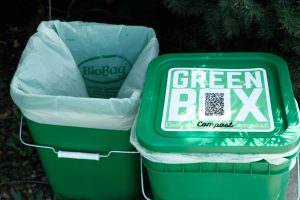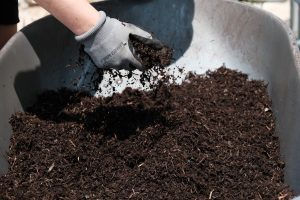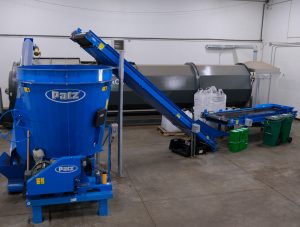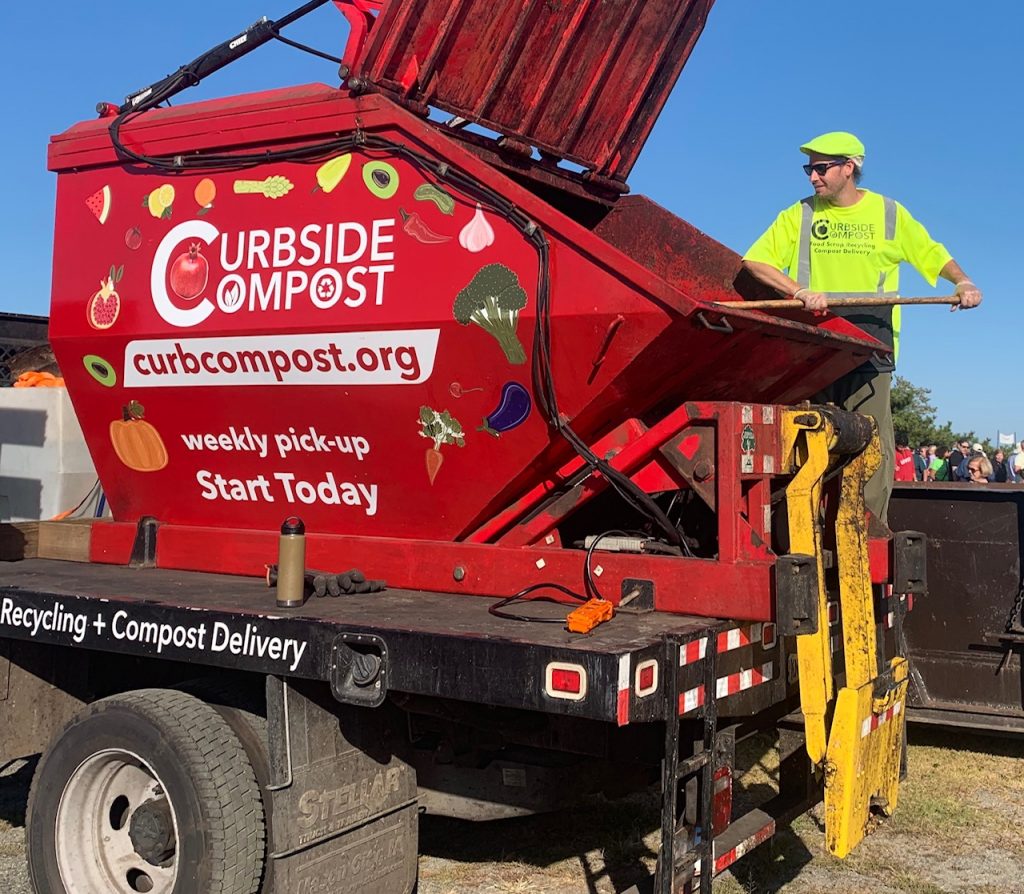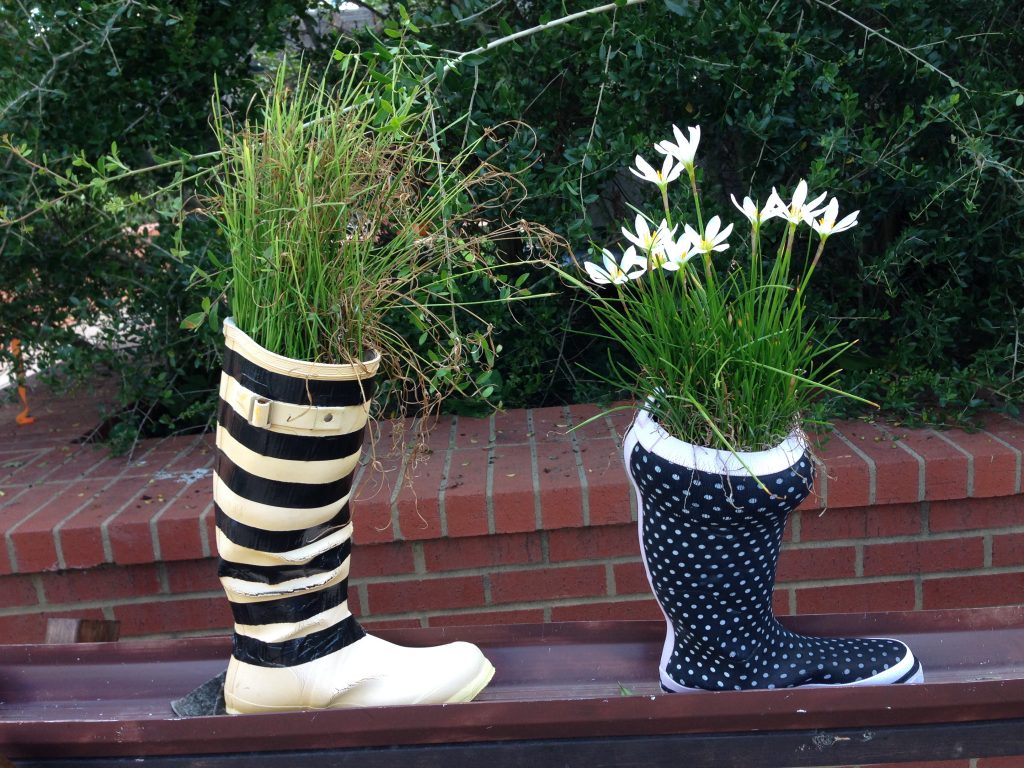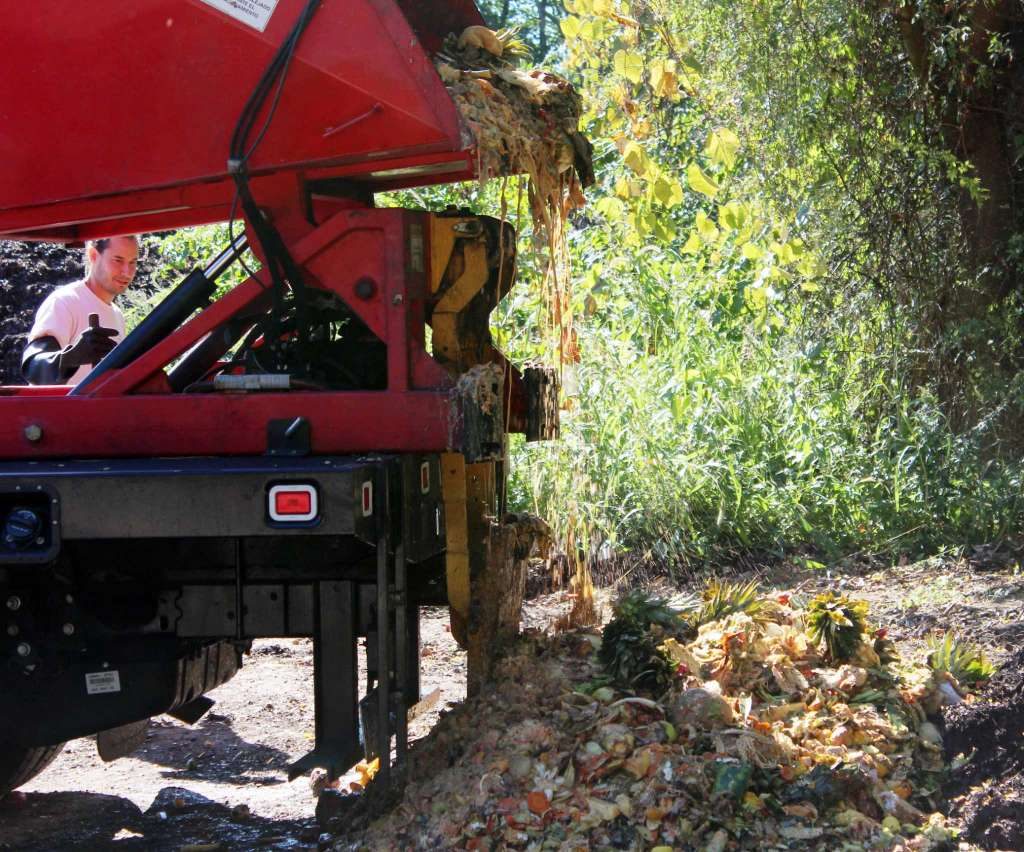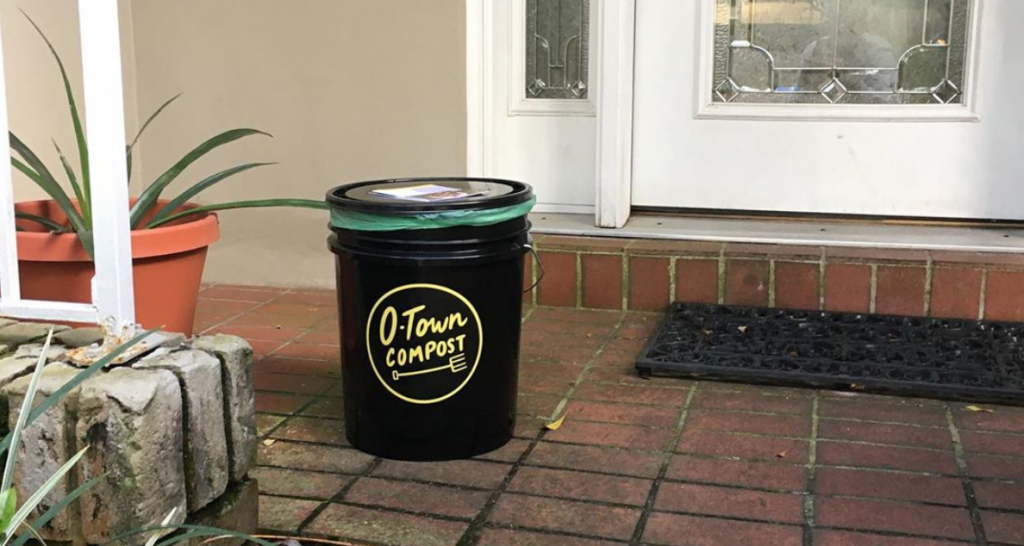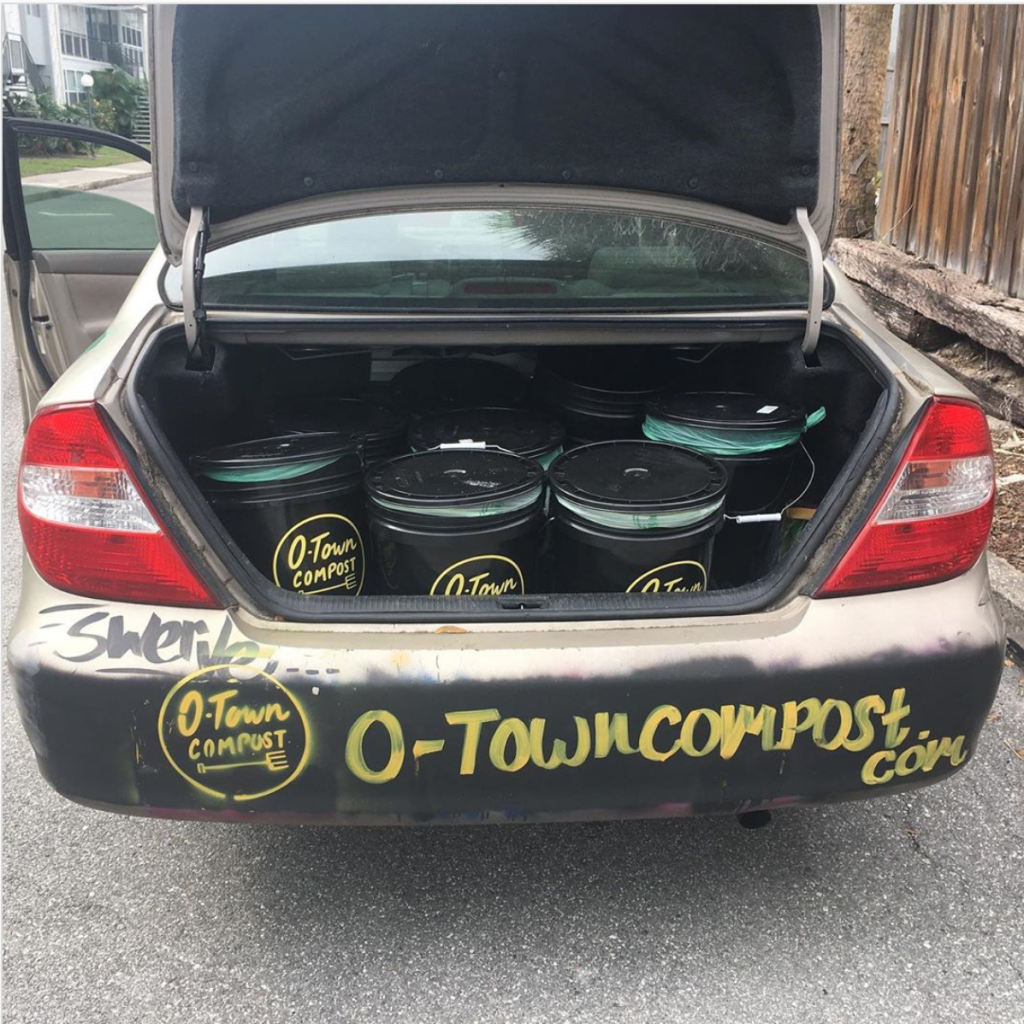Welcome to Biobag’s Community Heroes series! Each month, we will highlight community heroes that are making a difference in their communities and working to make their local environments cleaner and healthier.
This month, we are taking a look at Rubber City Reuse!

Rubber City Reuse was founded in 2019 in Northeast Ohio and has since played a pivotal role in diverting organic waste from landfills, converting it into nutrient-rich compost used for various local initiatives such as food cultivation, soil remediation, erosion prevention, and beautification of gardens. Biobag Associate spoke to Benjamin about the organization. Their interview is transcribed below.
What led you to start your composting operation?
Benjamin: Before this I was a chef and I saw firsthand the amount of food waste going to landfills, then I learned about the GHG emissions, and a passion was born.

Who do you serve and how can people get in touch with you if they want to start composting?
Benjamin: We currently serve Summit, Portage and Stark Counties in Ohio. Folks can call, email, or sign up through our website www.rubbercityreuse.com

How much organic material do you typically take in on a weekly basis?
Benjamin: Roughly 10,000lbs/wk.

Please give us 1 fun fact about you or your business.
Benjamin: We are about to have our 5 year anniversary!

Feel free to add any additional information about your operation as you see fit.
Benjamin: We donate roughly half of our drop off capacity to underserved communities in Greater Akron to ensure that sustainable causes are accessible for everyone. We do so in partnership with local community development corporations.

If you would like to be featured in a future edition of Community Heroes, please email us at marketing@biobagusa.com.
